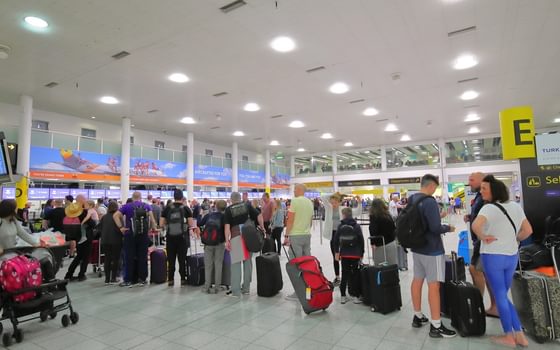Budget 2017: Heavy on air pollution, light on innovation
The Chancellor's Spring Budget did little to tackle climate change - but community action to shape a better future for our planet is taking place across the country.
13 March 2017
The Budget on Wednesday did little to protect the air we breathe.
It had no mention of one of the UK’s most urgent crises: air pollution. In fact, it might have just made it worse.
Air pollution is one of the many damaging consequences of our fossil fuelled economy, and it is making us all sick. But Phillip Hammond thinks that it’s “absolutely essential that we maximise the exploitation of remaining [fossil fuel] reserves” — whilst at the same time failing to protect our right to health care, presiding over the largest sustained fall in NHS spending as a share of GDP in any period since 1951.
With thousands of early deaths and as much as £27.5bn in costs every year from air pollution, it’s a struggle to see how this can’t only get worse.
It is a relief at least to be reminded that shaping a better future for our communities and our planet is not a private right of politicians.
In Ffos-y-Fran, near Merthyr Tydfil in South Wales, residents fighting against air pollution and climate change have got international backing for their plight this week. A yet unreleased UN report is set to challenge the UK’s approach to regulation regarding the health impacts of an opencast coalmine in the area, the largest in the country.
For the past 10 years, thousands of residents in and around Merthyr Tydfil have been campaigning against plans to expand by coal company Miller Agent, as they battle with high rates of childhood asthma and cancer clusters resulting from the toxic dust from coal mining. Despite having support from the local council and members of the Welsh Parliament, plans were approved by the Welsh Government, amidst confusion about where the power actually lies.

Image credit: Break Free/Kristian Buus
Community-led plans must be taken far more seriously within the wider decision-making system. Economic progress should be defined by locally-felt economic benefits, rather than by contribution to the area’s GVA or short-term financial returns.
“There’s a whole range of people who use the site,” says local campaigner Jim Davies, who is involved in the fight against Miller Argent in Merthyr Tydfil, “it really is a valuable resource, (…) but this mine will be right smack in the middle of all that, taking up everything.”
It is important that communities build on local enthusiasm to develop economic solutions to their areas. Miller Argent’s main argument for its business is the creation of jobs. But we know that’s not the only way to create jobs!
There are plenty of alternatives for job creation, so we shouldn’t let this tired and misleading argument stop us – especially given the immense cost to our environment and our health.
In Swansea Bay, a world leading project to create the world’s first power-generating tidal lagoon is developing, and is set to create or support 1,900 jobs and harness renewable energy from our tides, enough to power 155,000 homes for 120 years. The project will also support economic regeneration in the area beyond renewable energy, with opportunities for tourism and aquaculture.
Meanwhile, further south there are exciting new ideas being developed for innovative community-owned marine renewable energy. I saw some of these on Saturday, speaking in Torbay about our Blue New Deal.
Philip Hammond has repeatedly missed opportunities to give power to communities to build an alternative future, delaying the go ahead for the Bay Tidal Lagoon, and failing to pledge support for renewable energy. We must now come together to demand more power for local people who are working to deliver clean air, cleaner energy and a better future for our communities.
Topics Climate change Energy






